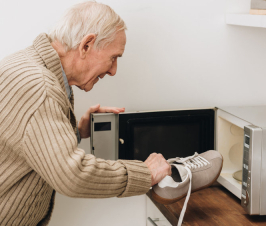Proton Pump Inhibitors Inhibit Necessary Acid
 Acid-blocking drugs called proton-pump inhibitors (PPIs) are one of the most commonly prescribed medications in this country (esomeprazole, or Nexium, is consistently in the top 5 every year) and are used to treat gastroesophageal reflux (GERD) or serious heartburn. They can be purchased over the counter as well in the form of generic omeprazole and are used by 15 million people in the United States alone.
Acid-blocking drugs called proton-pump inhibitors (PPIs) are one of the most commonly prescribed medications in this country (esomeprazole, or Nexium, is consistently in the top 5 every year) and are used to treat gastroesophageal reflux (GERD) or serious heartburn. They can be purchased over the counter as well in the form of generic omeprazole and are used by 15 million people in the United States alone.
Short Term Use Gone-on-too-Long
Originally intended for short-term use only, PPIs drastically reduce the amount of acid the stomach can make, which makes good sense if an ulcer needs a less acidic environment to heal or for short-term use while working on other gut-repair, but makes no sense for regular use as stomach acid is essential for digestive health. Minimal stomach acid makes it difficult to break down proteins, secrete digestive enzymes, absorb minerals and prevent food-borne illness. This puts people at risk for mineral deficiencies which can cause leg cramps (magnesium) or osteoporosis (vitamin D and calcium), food poisoning, and malnutrition.
New Research Links PPI Use to Serious Illnesses
In the last three years, new research has come out that links PPI use to myriad serious illnesses including heart disease, dementia, chronic kidney disease, and even pneumonia. The last is unusual, in that increased risk of pneumonia is higher during the first month of PPI use. All other linked diseases have a correlation between length of use of PPI and increased incidence.
Other Options for Treating Heartburn
No one wishes to raise the odds of dealing with kidney failure, Alzheimer’s, or heart disease, but no one wants to suffer the pain of GERD either. Thankfully, there are other options to treating painful heartburn.
- Find a naturopathic physician to help you
- Lose weight, if necessary
- Don’t wear tight clothing, eat smaller meals, wait at least 3 hours after eating to go to bed
- Figure out what foods trigger reflux and avoid them
- Heal your gut (your ND will help you!)
- Slooooooowly wean off of your acid-blocking medications
- Have backup medicine to help you through rough spots, herbs are very helpful
References:
- Gomm W, von Holt K, Haenisch B, et al. Association of Proton Pump Inhibitors With Risk of Dementia: A Pharmacoepidemiological Claims Data Analysis. JAMA Neurology [serial online]. April 2016;73(4):410-416.
- Lazarus B, Chen Y, Wilson FP, Sang Y, Chang AR, Coresh J, Grams ME. Proton Pump Inhibitor Use and the Risk of Chronic Kidney Disease.JAMA Intern Med. 2016;176(2):238-246.
- Lambert AA, Lam JO, Paik JJ, Ugarte-Gil C, Drummond MB, Crowell TA. Risk of community-acquired pneumonia with outpatient proton-pump inhibitor therapy: a systematic review and meta-analysis. PLoS One. 2015;10(6):e0128004.
- Juurlink D, Dormuth C, Huang A, et al. Proton Pump Inhibitors and the Risk of Adverse Cardiac Events. PLoS One Dec 27, 2013.
 Dr. Alethea Fleming, ND is a passionate advocate for naturopathic geriatric medicine. A 2007 Bastyr University graduate, she also earned a certificate in Gerontology from the University of Washington. Dr. Fleming is the owner and lead physician of the Vital Aging Clinic in Anacortes, Washington where she provides primary care to all adults as well as adjunctive geriatric care. Dr. Fleming is active in multiple community organizations as well as a member of WANP, AANP and OncANP. In her off hours, Dr. Fleming can be found hiking the beautiful trails of Fidalgo Island, spending time with her wonderful husband and son, or with her nose firmly in a good book.
Dr. Alethea Fleming, ND is a passionate advocate for naturopathic geriatric medicine. A 2007 Bastyr University graduate, she also earned a certificate in Gerontology from the University of Washington. Dr. Fleming is the owner and lead physician of the Vital Aging Clinic in Anacortes, Washington where she provides primary care to all adults as well as adjunctive geriatric care. Dr. Fleming is active in multiple community organizations as well as a member of WANP, AANP and OncANP. In her off hours, Dr. Fleming can be found hiking the beautiful trails of Fidalgo Island, spending time with her wonderful husband and son, or with her nose firmly in a good book.

















